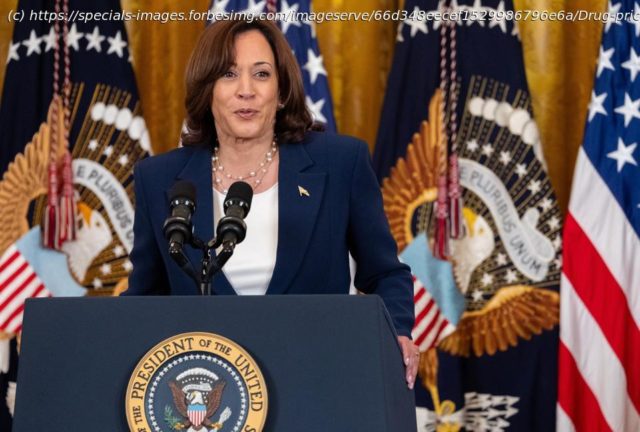Harris touts the IRA’s drug pricing measures which reduce Medicare beneficiary out-of-pocket costs. If elected her quest to expand the IRA may hit roadblocks in Congress.
Standing next to President Biden at a campaign event last month, Democratic nominee for President, Kamala Harris, celebrated the newly announced price reductions for the first ten prescription medications Medicare negotiated under a provision contained in the Inflation Reduction Act. Harris said she is “proud to have cast the tie-breaking vote that gave Medicare the power to negotiate” drug prices. And now she has reaffirmed her commitment to extend applicability of parts of the law to the commercial insurance sector and build on the Medicare negotiation policy to include more drugs if she becomes President. However, she wouldn’t be able to accomplish these goals on her own. She would need Congressional support.
The Department of Health and Human Services last month announced lower prices—so-called maximum fair prices—Medicare had negotiated with drug makers for the first ten drugs it selected in 2023 under the IRA’s drug price negotiation program. These outpatient medications are popular, top-selling drugs, also among seniors and disabled folks. They are used to treat conditions such as heart disease, diabetes and cancer. The new prices will go into effect on January 1, 2026. Once these prices are implemented, Medicare beneficiaries are expected to save in aggregate $1.5 billion in out-of-pocket costs on pharmaceuticals.
The next batch of 15 outpatient prescription medicines will be chosen by the Centers for Medicare and Medicaid Services in February 2025; their MFPs will be applied in 2027. And the following round will include a total of 15 outpatient and physician-administered medications, to be selected in February 2026 with MFPs applied in 2028.
Домой
United States
USA — mix How A Future Harris Administration Could Expand Medicare Drug Pricing Provisions






